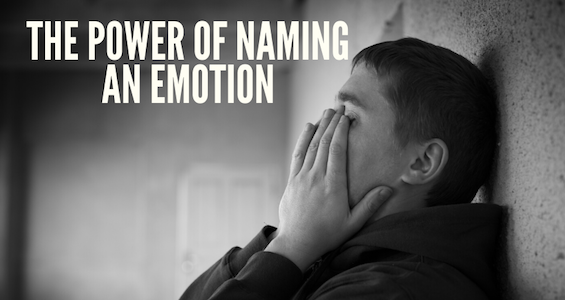The Power of Naming An Emotion
In the middle of 2019, I took a sabbatical from my coaching work and left my company. One of the main factors behind my decision was the state of my emotional health. At the start of 2019, I had several indications that I was already not doing well emotionally. There were several incidents where I had allowed rage to get the better of me. These emotional outbursts happened at home and at work. However, I told myself that this was a normal phase in life. After all, I was living in a fast-paced and competitive society in Singapore, living a stressful life as an entrepreneur and being a father to 3 young kids.
The Tipping Point
However, by mid 2019, I had to stop telling myself the same narrative. The tipping point was a particular episode I had after a team debrief. As a company, we had just completed our largest training project - in terms of revenue and the number of training participants. The project was especially remarkable because it was birthed out of an innovation. There was no template, no previous experience of such kind and the team pulled it off. To top it off, the feedback from the participants was fantastic. The debrief was intended to celebrate this huge success and to brainstorm ways to overcome operational challenges. Unfortunately, the debrief did not turn out the way I hoped for it to go. Instead, I had an outburst, the brunt of which was borne by some of my team members. Emotionally, I felt horrible. That pain was significant enough to make me dread turning up for work. I eventually decided it was time I do something to address this issue. Stopping work was the first step.
On the home front, my wife and I had been discussing the idea of attending a therapy session together. The discussion started several years ago but we never got down to doing it. In the second month of my sabbatical, there was a particular conflict which we debriefed and reached agreement on. Regarding the state of the marriage: we were getting by but hardly thriving. We reached a consensus and agreed to attend a therapy session together. “Let’s do it.”
Going through Therapy
Based on some recommendations, we chose an organization called Counselling and Care Centre. They assigned a senior therapist to us and fixed a date. The first visit to the therapist was one filled with uncertainty. I had no idea how the session would turn out. Thoughts were flying through my head: “Will there be some deep issues flushed out during our conversation? Am I ready to hear them? What will my reaction be like if the wife said something that I’m not ready to hear? What will her reaction be if I did the same?” In the end, the fears were unfounded. I was relieved when I asked how she felt about the session and her response was a exuberant one. “Therapeutic!”
Naming my Emotion
We attended a few sessions together and we also had individual sessions. The third joint session, in particular, had a deep impact on me. I left that session feeling quite overwhelmed. Some raw emotions surfaced. During the session, I shared some of my feelings of frustration: there were many things I did which I received negative feedback from my wife. I felt I had done my best though. The feedback made me feel like my best was not enough. The therapist had us revisit some of these situations and eventually, my feelings of frustration was named: an emotion of defeat. I suddenly had an awareness that this feeling of defeat was not isolated to the marriage relationship. It was a feeling I had consistently experienced through out my life. I assessed that this emotion was what contributed to some of my worst outbursts.
READ: WHAT IS MY HEALTH WORTH?
I remembered feeling defeated when I was young. I scored an own goal in a soccer match and at the end of the match, I was ridiculed and laughed at. That experience left a stigma. I also remembered feeling defeated when I was learning to play a particular board game. I was thrashed by my opponents and humiliated. I felt utterly beaten. In the more recent years, I remembered feeling defeated when I was passed up for a promotion. The feeling of not being good enough for a promotion despite giving my best was very very strong. I remembered that particular incident made me depressed for a month. The most poignant realisation was identifying this same feeling of defeat at the team debrief which I mentioned earlier. That feeling of defeat ultimately led me to taking a sabbatical break. I remembered feeling that I had given my best to serve the team and led the team to a successful completion of the project. The debrief outcome however made me realized the success came at a far greater cost to the team. Trust was broken and relationships were strained.
Conclusion: We cannot intervene in what we cannot see. In naming this emotion of defeat, I now have something to work on and that has given me much hope. My marriage has also taken a different turn. A greater level of trust had been rebuilt and our ability to communicate had strengthened. I feel that my emotional health is now at a much better place. I have since ended my sabbatical and started a new journey. I now focus on helping people integrate strengths using the ontological approach in Singapore and across the world. I have continued with my therapy which has served me to become a better coach. I am able to observe my therapist in action and concurrently explore areas of growth. I now have a greater confidence in my coaching work.
This article is the second in the series of my Halftime journey.
Written by Victor Seet

